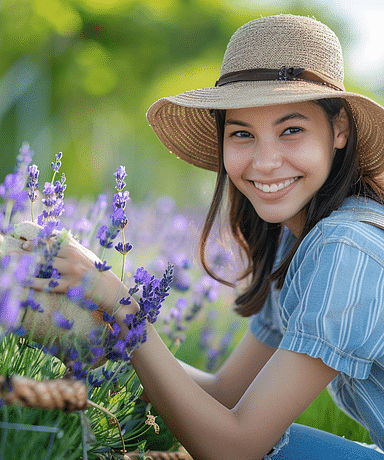
Essential Gardening Tips for a Flourishing Garden
Welcome to our garden oasis, where we cultivate not just plants, but a community of passionate green thumbs eager to share their wisdom. Whether you're a seasoned gardener or just starting out, you'll find inspiration and practical advice aplenty here. Dive into our treasure trove of gardening tips, carefully curated to help you nurture thriving plants and create the garden of your dreams. From soil preparation to pest control, we've got you covered with insights gathered from seasoned experts and dedicated enthusiasts alike. Let's embark on this green journey together and watch your garden flourish like never before!

Start with the Soil
Healthy soil is the foundation of a successful garden. Invest in quality soil amendments like compost and organic matter to improve soil structure, fertility, and moisture retention.
Choose the Right Plants
Select plants that are well-suited to your climate, soil type, and sun exposure. Native plants are often a wise choice as they are adapted to local conditions and require less maintenance.
Water Wisely
Water deeply and infrequently to encourage deep root growth and drought tolerance. Consider using drip irrigation or soaker hoses to deliver water directly to the root zone and minimize water waste.
Mulch for Moisture and Weed Control
Apply a layer of mulch around plants to conserve soil moisture, suppress weeds, and regulate soil temperature. Organic mulches like wood chips, straw, or shredded leaves also enrich the soil as they decompose.
Prune Regularly
Pruning promotes healthy growth, improves air circulation, and enhances the appearance of plants. Remove dead or diseased branches, and shape plants to encourage strong structure and flowering.
Feed Your Plants
Fertilize regularly with a balanced fertilizer to provide essential nutrients for growth and flowering. Follow package instructions carefully and avoid over-fertilizing, which can harm plants and pollute the environment.
Practice Integrated Pest Management (IPM)
Keep pests in check by attracting beneficial insects, using physical barriers, and applying least-toxic pest control methods when necessary. Avoid using broad-spectrum pesticides that harm beneficial insects and disrupt the natural balance of your garden.
Stay Vigilant Against Diseases
Monitor plants for signs of disease such as wilting, discoloration, or unusual growth. Practice good sanitation by removing infected plant material and maintaining proper spacing to improve air circulation and reduce disease spread.
Rotate Crops
Prevent soil depletion and reduce pest and disease problems by rotating crops in your vegetable garden. Planting different crops in each bed or area each season helps break pest and disease cycles and improves soil health.
Embrace Continuous Learning
Gardening is a lifelong journey of discovery and experimentation. Stay curious, observe your plants closely, and don't be afraid to try new techniques. Join a gardening club, attend workshops, or connect with fellow gardeners online to share knowledge and experiences.
By incorporating these essential gardening tips into your routine, you'll be well on your way to cultivating a vibrant and flourishing garden that brings joy and beauty to your outdoor space. Happy gardening!